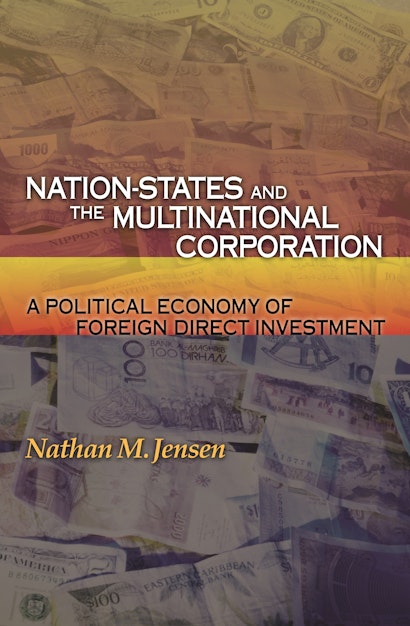Nation-States and the Multinational Corporation: A Political Economy of Foreign Direct Investment


Paperback
- Price:
- $39.95/£35.00
- ISBN:
- Published:
- Feb 10, 2008
- Copyright:
- 2006
- Pages:
- 224
- Size:
- 6 x 9.25 in.
- 6 line illus. 23 tables.
ebook
What makes a country attractive to foreign investors? To what extent do conditions of governance and politics matter? This book provides the most systematic exploration to date of these crucial questions at the nexus of politics and economics. Using quantitative data and interviews with investment promotion agencies, investment location consultants, political risk insurers, and decision makers at multinational corporations, Nathan Jensen arrives at a surprising conclusion: Countries may be competing for international capital, but government fiscal policy—both taxation and spending—has little impact on multinationals’ investment decisions.
Although government policy has a limited ability to determine patterns of foreign direct investment (FDI) inflows, political institutions are central to explaining why some countries are more successful in attracting international capital. First, democratic institutions lower political risks for multinational corporations. Indeed, they lead to massive amounts of foreign direct investment. Second, politically federal institutions, in contrast to fiscally federal institutions, lower political risks for multinationals and allow host countries to attract higher levels of FDI inflows. Third, the International Monetary Fund, often cited as a catalyst for promoting foreign investment, actually deters multinationals from investment in countries under IMF programs. Even after controlling for the factors that lead countries to seek IMF support, IMF agreements are associated with much lower levels of FDI inflows.